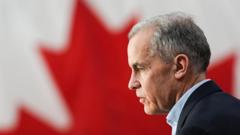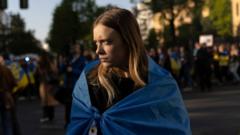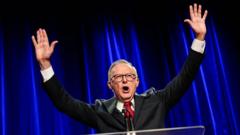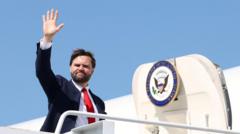Six months after a scandalous first round, Romania is set for a crucial presidential election. Amid concerns of Russian interference and low public support for the outgoing administration, nationalists and centrists battle for power, with Europe's attention firmly on Bucharest.**
Romania Faces Pivotal Election: Nationalist vs. Centrists After Fraud Scandal**
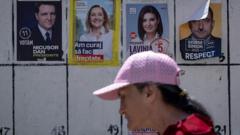
Romania Faces Pivotal Election: Nationalist vs. Centrists After Fraud Scandal**
A re-run of Romania’s presidential election unfolds today following a controversial annulment, pitting nationalist George Simion against centrist candidates.**
Romanians will cast their votes once again today in a crucial presidential election, six months after a previous attempt ended in scandal and the annulment of results. In a race that has captured international attention, the nationalist candidate George Simion, who leads the Alliance for the Union of Romanians (AUR), faces off against three centrist contenders, including the popular mayor of Bucharest, Nicusor Dan.
The annulled election last November saw Calin Georgescu, an outsider candidate known for his radical views, emerging as the initial frontrunner. However, allegations of campaign fraud and Russian interference led to the upheaval, drawing sharp criticism from U.S. Vice President JD Vance and raising eyebrows within Romania's political circles that often rely on its special relationship with the United States. Notably, Georgescu isn't on the ballot this time.
Simion's campaign hinges on a narrative of representing every Romanian citizen who feels disregarded, advocating for national rights and identity. He posted a message on social media emphasizing collective empowerment ahead of the election. Polls—prone to inaccuracies in Romania—suggest Simion will take the lead today, with a likely run-off showdown scheduled for May 18 against either Nicusor Dan or Crin Antonescu, a liberal politician from the ruling coalition.
European capitals, along with Washington, Kyiv, and Moscow, are watching the results closely. Romania's importance as a logistical route for arms sent to Ukraine and its NATO role further amplify the stakes. The future of a U.S. missile defense shield in Romania and varied airbase operations could potentially shift within a new administration, particularly given Simion's past remarks on financial support for Ukrainian refugees.
As the sun blazes over Bucharest, crowds flock to the historic Cotroceni Palace, where interim President Ilie Bolojan has welcomed the public into its grounds. The site, echoing Romania's royal past, has received a warm response from visitors eager for a glimpse into their political future. Opinions among voters vary; while some remain loyal to Simion due to his stance on economic grievances, others, like Ionut, reconsider their choices with a sense of decreased frustration over the nation’s recent Schengen membership accession.
Young voters express a desire for change against entrenched corruption, aligning more with centrist visions exemplified by candidates like Nicusor Dan. Meanwhile, the Romanian diaspora, notably around a million votes registered from abroad, stands poised to bring unseen influence to the ballot, their sentiments not reflected in current polling.
Looking to the horizon, this election signals a critical juncture for Romania's political landscape as the choices made could redefine the country's role both regionally and internationally.

